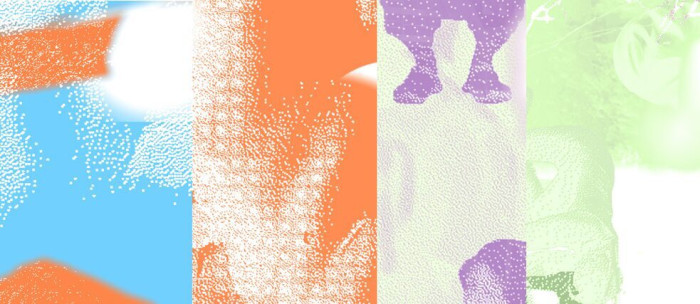In an attempt to explore possibilities of intercultural exchange and comparative understanding of experiences across the south globe, Invisible Dance: The Body in Friction invites applications from the broader locations of South Asia and Southeast Asia through an open call process.
Departing from the notion of ‘invisibility’ in Augusto Boal’s invisible theatre and social choreography, the Goethe-Institut initiated a process-based laboratory for performance-makers in India and Indonesia in 2022. The Indonesian Garasi Performance Institute and Indian choreographer Mandeep Raikhy jointly developed ‘Invisible Dance’ as a platform for artists to explore invisible connections between social experiences and dance. In this first edition of the project in 2022, seven artists and art collectives from geographically and socially diverse backgrounds in Indonesia and India were invited to develop new performance-based works by responding to the question of the ‘invisible’ in their respective cultural contexts.
Following the findings of the Invisible Dance project in 2022, the project continues in 2023 with a specific thematic engagement of the body in relation to the idea of friction. How do socio-cultural conflicts and tensions become integral to the structuring of our everyday experience? In what ways does the embodied experience of friction reside in our bodies? How does conflict articulate itself or find resolution through the movement of our bodies?
Invisible Dance: The Body in Friction seeks to explore the hidden choreography of conflict and friction and, in doing so, considers movement practice as a means of producing counter-movements and choreographies. This objective will be explored during a three-week residency that will be held at the Conflictorium in Ahmedabad, India, between 10-30 April 2023. The Conflictorium is a museum that enables different sections of society to engage with conflict through a range of disciplines.
Eligibility:
- Artists who are interested in socio-political engagement through dance, choreography and/or movement research.
- Choreographers and interdisciplinary performance artists with an experience of working with movement for at least three years.
- Citizens or residents of Bangladesh, Cambodia, India, Indonesia, Laos, Nepal, the Philippines, Sri Lanka, Thailand, and Vietnam.
- Artists from communities that are historically and structurally marginalised on account of their social and geographic location. Those working in peripheral locations, satellite cities, rural and coastal areas will be given priority.
- English will be the residency’s communication language. Since the residents are expected to actively engage in the exchange process during the residency, basic comfort in spoken English will be required.
- The applicants must hold the required documents for international travel (passport, Covid vaccine certificates, etc).
Selected participants will receive flight tickets, visa costs, food allowance and lodging, as well as remuneration of 450 euros for their participation at the residency.




